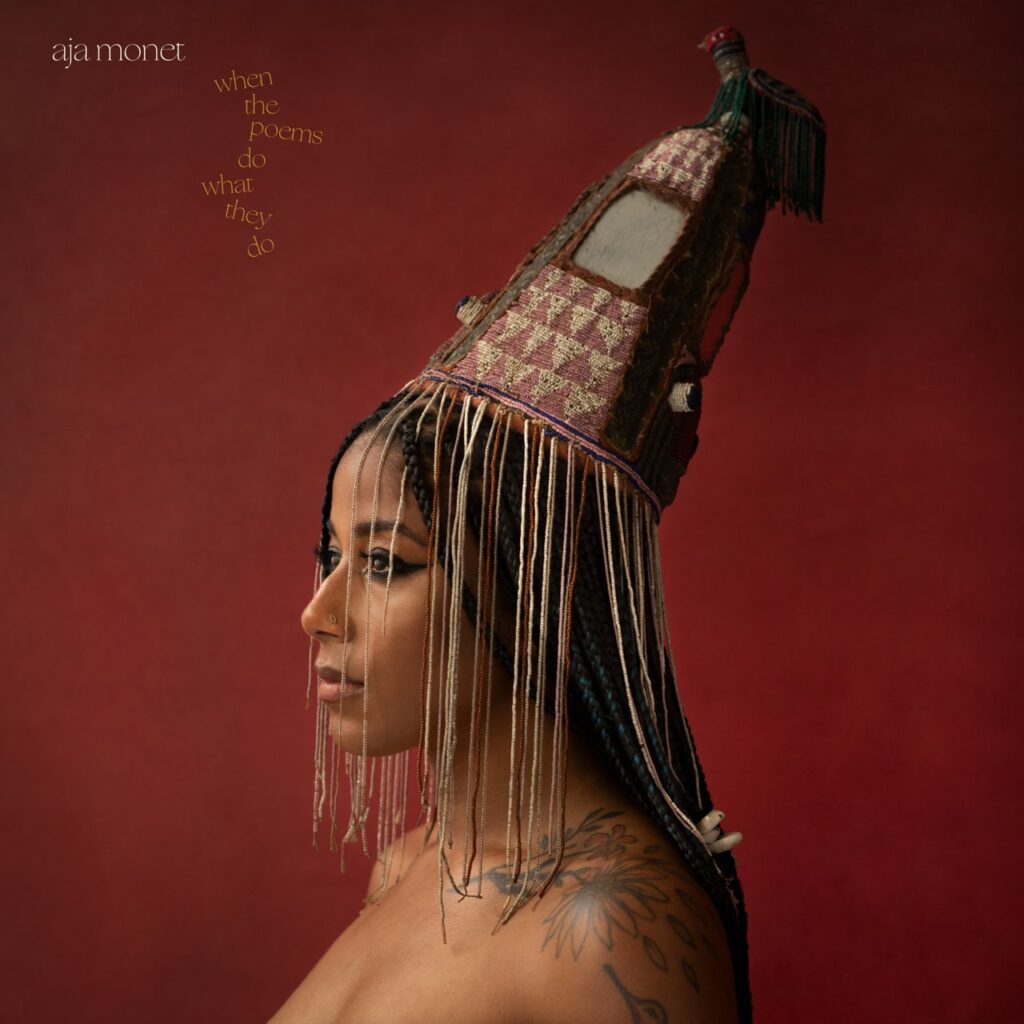In her 1977 essay “Poetry Is Not a Luxury,” the feminist poet and essayist Audre Lorde provided a profound reinterpretation of the literary form. “I speak here of poetry as a revelatory distillation of experience,” she writes, “not the sterile wordplay that, too often, the white fathers distorted the word ‘poetry’ to mean.” Here, Lorde argues that a poem is not necessarily impressive for its clever construction, or its adherence to age-old conventions, but rather for the emotional honesty and power it conveys. On her debut album, when the poems do what they do, Brooklyn poet Aja Monet gloriously inhabits Lorde’s vision as she reflects on the scars of social injustice, the strength of love, and her own multiplicity.
In her previous collections, such as My Mother Was a Freedom Fighter and The Black Unicorn Sings, Monet explored themes of childhood, race, and the rhythms of New York City with a rare gentleness and precise eye. Her new record expands upon these subjects, taking us through storm-battered homes and jump rope competitions as she explores Black joy and the blight of capitalism. The unhurried and gentle arrangements that accompany her words—provided by Grammy-winning trumpeter Chief Xian aTunde Adjuah, drummer Marcus Gilmore, and other acclaimed musicians—only add to the gravitas and wonder.
On opening track “I Am,” tapped rhythms land like errant raindrops on a windowpane; Monet begins describing herself in all her contradictions and complexities, painting herself as, simultaneously, “a kiss that quivers, a machete that bleeds … a brown liquor flirt.” The drumming then ramps up to a crescendo, loud and erratic like a stampede as she pivots to recognize the role others have played in her life. When Monet cries, “I am because of you, we are here together, there’s no me without you” at the end of the song, the percussion sounds like a chorus of affirmation.
When Monet speaks her work aloud alongside curls of percussion and jazzy instrumentation, she creates a unique kind of musical intimacy. “Weathering” begins with a long, languid jazz intro consisting mainly of a muted trumpet over brushed drums and piano. It’s slow and sensual, underscoring Monet’s rapturous lyrics about a lover who “kisses wounds and sets free tornadoes down my spine.” While she frequently invokes the grandeur of the natural world in her writing, she can also inhabit a more colloquial mode; on “Why My Love,” Monet describes an affection for her community that is “Indigenous, ocean-wide, sky-deep” and then “ass-whooping, accountable.” An airy flute flies gracefully overhead, serving as a reminder of the lightness love can provide even in times of darkness.
The record’s highlight is “Black Joy,” which tenderly describes the beauty and vibrancy of Monet’s locale, even when it’s struggling with violence. She notices “twerks and taps, jooks and jives, Harlem shakes, electric slides” as well as neighbors rocking on their porch and barbecuing in their backyards. In the background, there is the echo of street chatter: faint sounds of laughter, a “whoop!” When Monet states that “joy is righteous and ratchet,” we don’t have to wonder what she means; instead we experience it along with her. Here is a glimpse into her desires, fears, and dreams, offered with unflinching honesty.
All products featured on Pitchfork are independently selected by our editors. However, when you buy something through our retail links, we may earn an affiliate commission.

